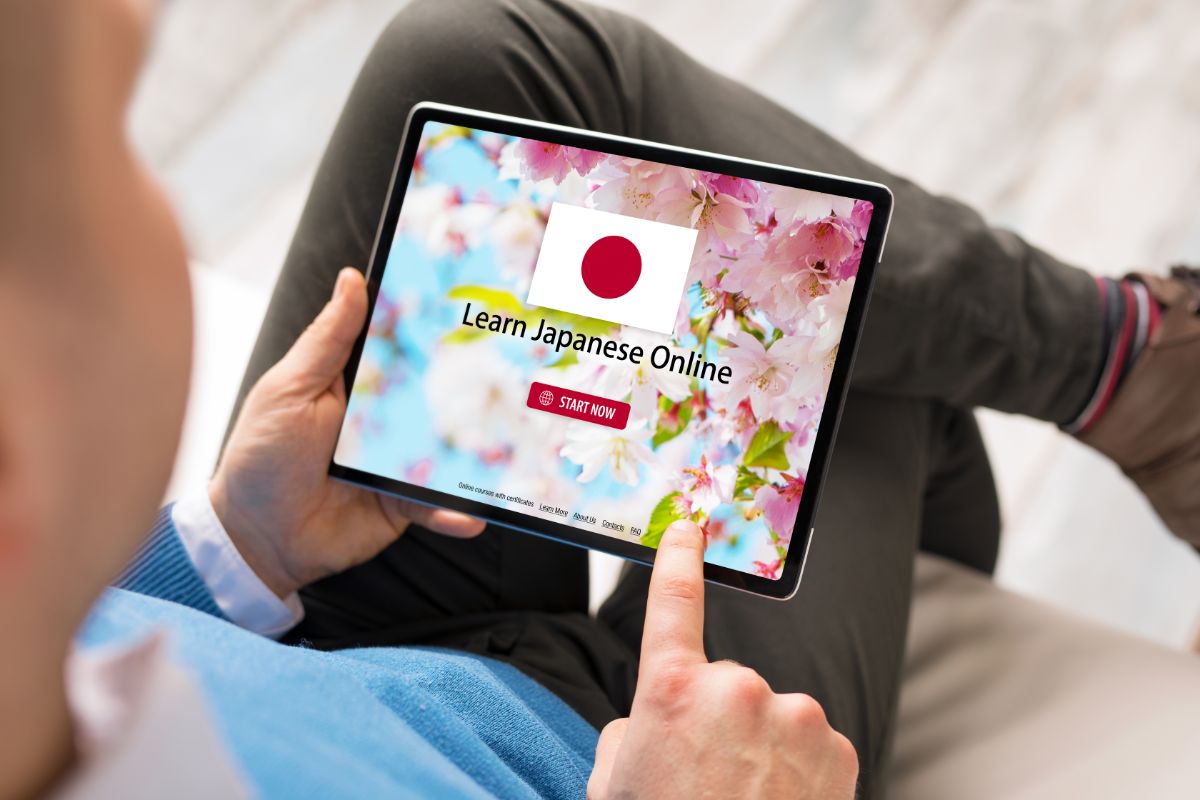Japan is a largely homogenous country, with 98.5% of the population being Japanese.
This means that Japanese is the primary language and widely spoken when it comes to conversation, media, street signs and anything else you can think of.
Whilst English is one of the most widely spoken languages in the world, you might be wondering if anyone at all can speak English in Japan.

If you find yourself asking questions like this, you’ve come to the right place!
We’ve written this article to discuss English speaking in Japan and how frequent it is for somebody to speak it at a good standard.
We’ve also included a short FAQ that will help explain some answers to common questions around this issue.
The Percentage Of English Speakers In Japan
English speakers have increased in Japan since the 1970s, when the culture began to have more interaction in the wider world.
It’s estimated that less that 30% of the current population of Japan can speak English at any level, with as little as 4% speaking it fluently.
Fluency is a difficult word to define, but here we basically mean people who can easily hold conversations and read English text.
The origins of why so little people speak English in Japan can be traced back to Japanese Culture in the early 20th century.
Japanese culture was very different from the west, and fairly different to other Asian countries beside it like China.
This is mostly because Japan is an insular island country and therefore has had much less interaction with other countries that might share borders.
For a long time Japan was an imperial nation-state, that is to say it was a country that valued homogenous society with a lack of foreigners and a key emphasis of national values.
The Meiji Restoration in 1868 caused further divisions between Japan and other countries, with Emperor Meiji restoring imperial power and a totalitarian government.
When it comes to language, this means that Japanese was the dominant language for much of the late 19th and early 20th century.
There was, however, some western influence during this period as Japan (see also our article on Westerners visiting Japan before 1868) industrialized and began to adopt some western ideas, especially to do with production. These practices can be seen today in modern Japanese society.
The Slow Increase Of English Speaking In Japan
It wasn’t until the end of world war 2 that Japan started to intergrate better with the western world.
Before this, there was a certain distance between Japanese and Western ideals that started to change after their surrender to the Americans.
In the 1990s and early 2000s, the Japanese economy ran into some problems, mostly due to events such as the Asian Financial Crisis of the 1990s.
This caused a series of steps to be taken to improve the economy and saw the government prioritizing tourism and integration with western economies.
This led to English being a more sought after language for Japanese nationals. There are however some real problems for Japanese people looking to learn English, mostly because of the differences between the languages.
Difficulties Of Learning English For Japanese Speakers
There are a few main reasons why english is a difficult language for Japanese people to learn. Firstly is the difference in alphabets.
Japanese focuses on three main scripts including Hiragana, Katakana and Kanji, with the last of the three featuring symbols that can make up whole words or sometimes even phrases.
The Latin alphabet is much different to these scripts and can be hard to grasp.
Secondly is the differences between the ‘r’ sound and the ‘l’ sound. Japanese speakers find it very difficult to tell the difference between these two sounds, as there isn’t such a big distinction within Japanese.
This causes a lot of Japanese speakers to pronounce the ‘l’ sound as an ‘r.’ A term that has been used to describe this – both mockingly and seriously – is the word ‘Engrish’ which describes how some Japanese speakers pronounce the word.
A lot of modern English teachers in Japan make sure to make an obvious distinction between the two sounds and make sure that Japanese speakers properly pronounce their ‘l’s’ and ‘r’s.’
A third reason why Japanese speakers find English hard to learn is because of their exposure to the outside world.
As mentioned before, Japan is a mostly homogenous country and English learners don’t have a lot of exposure to native speakers.
With modern technology there are now much easier ways to find language partners, but it’s still a problem that has caused the Japanese government to invest in programs that bring native English speakers to Japan.
Finally, the last reason is that English is just a hard language to learn. The grammar in particular is very difficult to understand and often takes years to master.
Even native English speakers sometimes struggle with it, so for a Japanese learner it can be overwhelming.
Final Thoughts
So there you have it! English speaking is quite low in Japan compared to other countries, but it is on the rise.
If you’re looking to go to Japan then you will probably need some proficiency in Japanese to get around, but it is worth noting that Japanese people are often very friendly and will help you out if you get lost, even if there is a language barrier!
We hope this article has given you some of the history and general insight into this topic and that you now feel a lot more confident about the whole thing. To learn more, check out our FAQ section below.
Frequently Asked Questions
Is Japan Friendly To Foreigners?
Because Japan is a mostly Japanese speaking country, you might be wondering how friendly they are to foreigners?
Well, most people in the country are very friendly to tourists and foreigners, though there are cultural differences that you’ll have to be careful of.
Generally, Japanese culture tends to involve people being quiet and aware of others in public, so you’ll want to make sure that you follow this same line of behaviour to avoid standing out.
However, since you’re a foreigner, people will understand that you won’t know everything!
- 16 Best Websites To Watch Japanese Movies With English Subtitles - May 11, 2023
- Is ZIPAIR The Best Airline For Traveling To Japan? - May 11, 2023
- Ryu Murakami Vs Haruki Murakami – Which One Should You Read? - May 11, 2023








